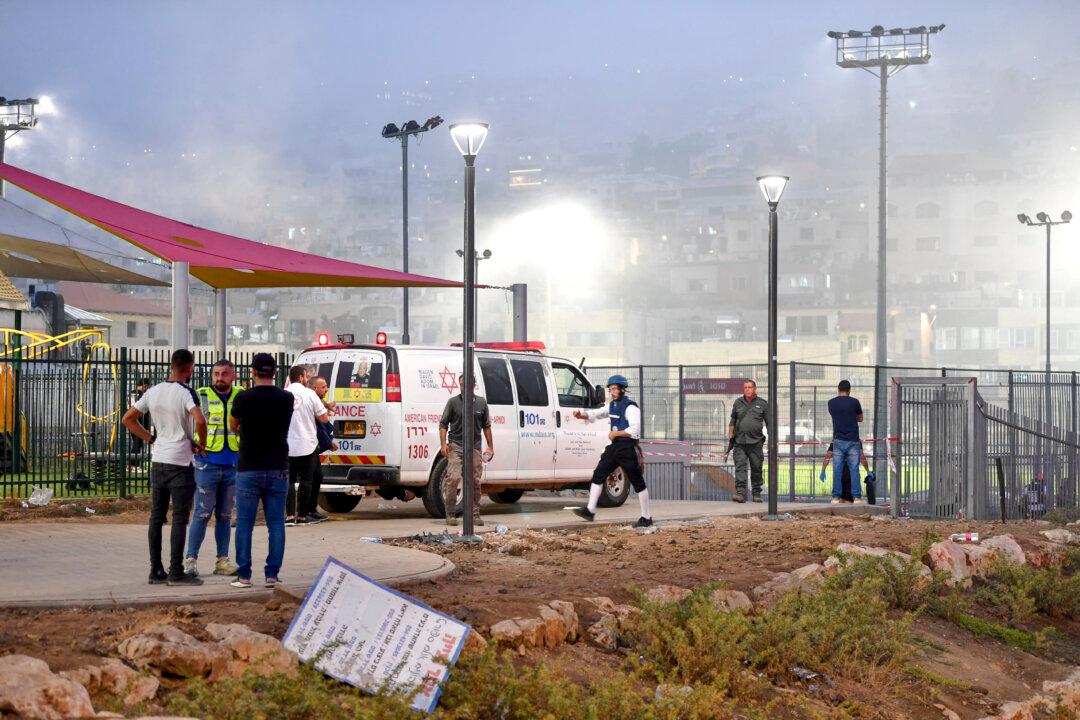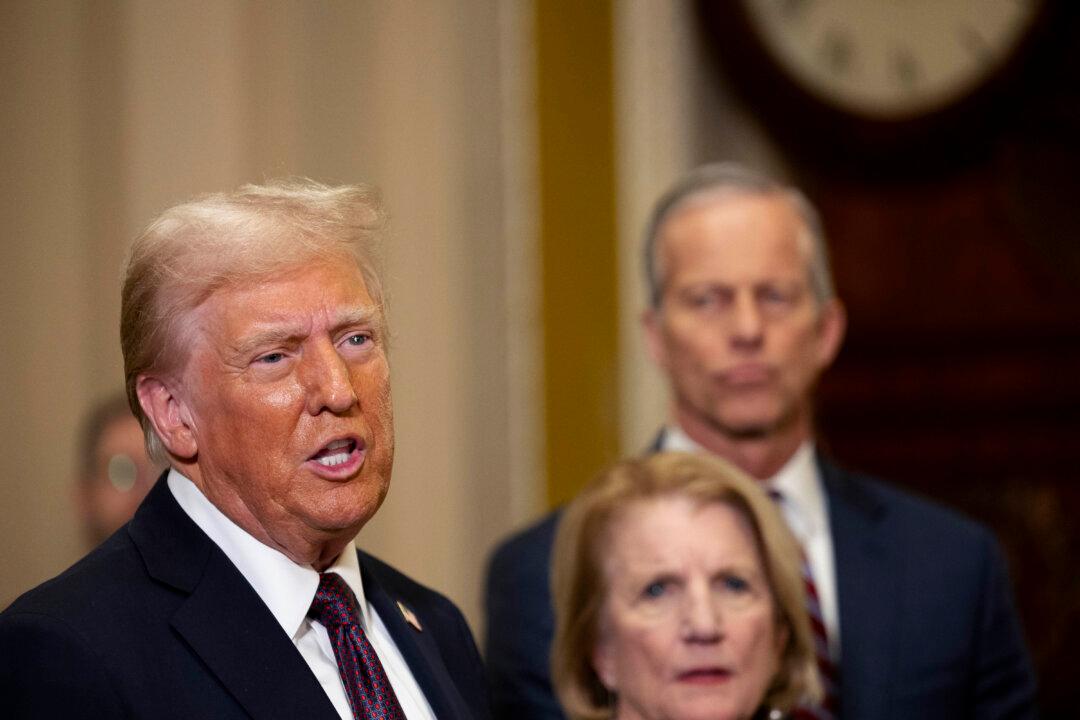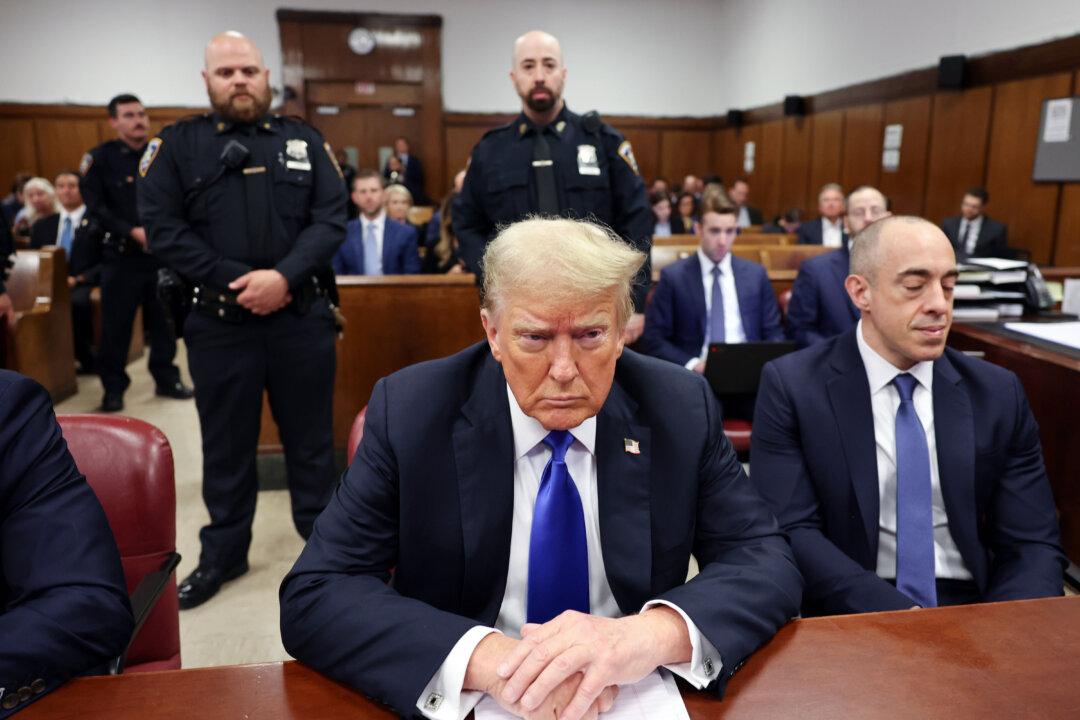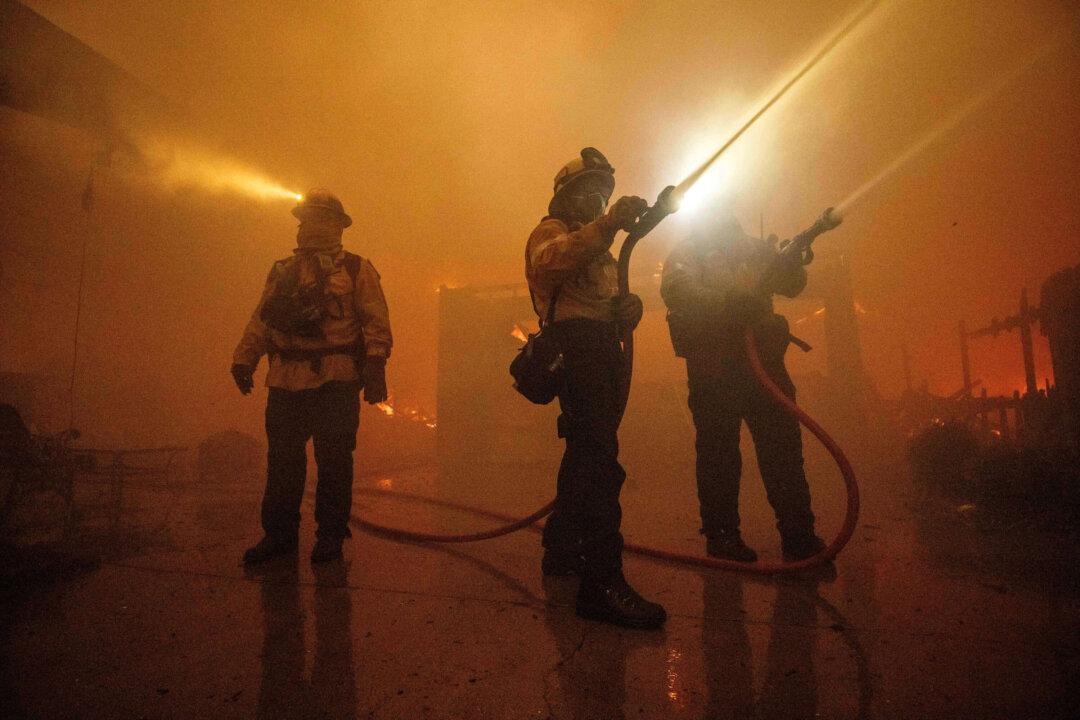Israeli Prime Minister Benjamin Netanyahu vowed a response from Israel to a rocket attack that left 12 people, including children, dead at a soccer field in the Golan Heights and said that his government will exact a “heavy price” from Lebanon’s Hezbollah terrorist group.
The group said that it “categorically denies allegations” made by the Israeli media about the attack in Majdal Shams in the Golan Heights.
“The Islamic Resistance has absolutely nothing to do with the incident and denies all false allegations in this regard,” it said in the statement.
The Israeli prime minister’s statement vowing a response was made after Mr. Netanyahu spoke with Sheikh Mowafaq Tarif, the leader of the Druze ethno-religious group, and “expressed his deep outrage over the murder of innocent people and children by Hezbollah,” according to his office.
Mr. Netanyahu was returning from a multi-day trip to the United States, where he met with President Joe Biden and Vice President Kamala Harris as well as the Republican nominee, former President Donald Trump.
He also wanted to convey his “heartfelt condolences on behalf of the entire people of Israel to the families of those who were murdered and to the entire Druze community,” his office wrote.

“We will pay a price on both the front and the home front, but by the end of the war, Nasrallah and Hezbollah will be crushed, and Lebanon will suffer severely,” he said on July 28. “We will restore peace and security to the northern communities. I have instructed the Foreign Ministry to prepare for a comprehensive campaign worldwide to gain legitimacy for action in Lebanon.”
Israeli, US Officials Say Hezbollah to Blame
Both U.S. and Israeli officials disputed Hezbollah’s denial of the rocket attack.The White House also blamed Hezbollah for the attack, adding that Washington has been in talks with Lebanese and Israeli officials since the incident.
The rocket attack has stoked public fears that the conflict in the Middle East between Israel and the Hamas terrorist group has spread into a wider regional conflict, and comes as top U.S. officials have urged the Israeli government to reach a cease-fire agreement with Hamas.
U.S. Secretary of State Antony Blinken said the United States doesn’t want a further escalation of the conflict, which has seen daily exchanges of fire between the Israeli military and Hezbollah along the border.
“We are in conversations with the government of Israel and, again, I emphasize its right to defend its citizens and our determination to make sure that they’re able to do that,” Mr. Blinken told a news conference in Japan.
Meanwhile, the UK foreign ministry expressed concern at further escalation, while Egypt said the attack could spill “into a comprehensive regional war.”







